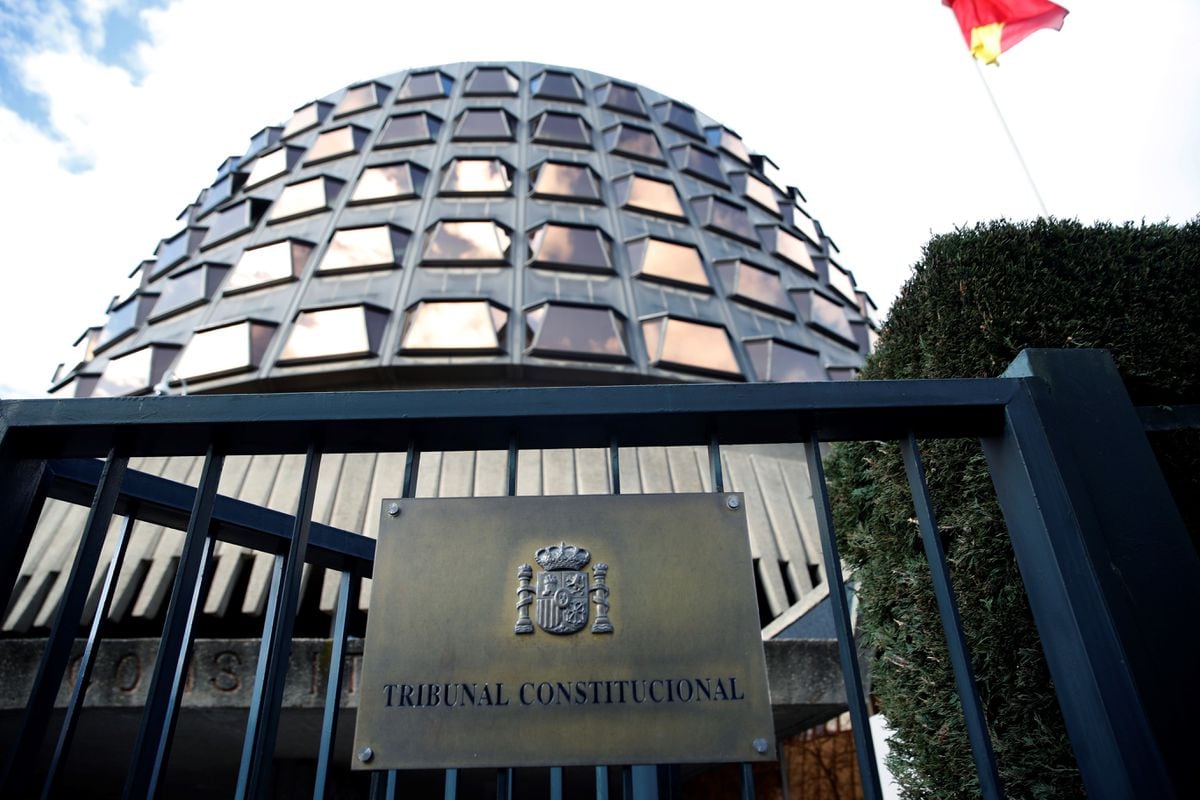The restriction of rights during the pandemic has once again divided the Constitutional Court, which has rejected an appeal for amparo filed by an individual who considered his fundamental rights violated because he could not demonstrate during the first state of alarm, in the initial phase of the covid-19 pandemic. The court has dismissed the challenge considering that in the case analyzed the priority was to guarantee the protection of public health. But the ruling has had the vote against three of the four magistrates of the conservative sector, who consider that the demonstration – convened in Seville for April 30, 2020 – should have been authorized, with the sanitary measures that were deemed sufficient to protect the participants.
The contested decision was the decision taken by the Government Sub-delegation in Seville on 22 April 2020 in order to prohibit a demonstration called by the appellant for the following 30 of the same month and which was to run through certain streets of Seville until it reached the Parliament of Andalusia. The march had to last two hours, with the first state of alarm for the health management of covid-19, Royal Decree 463/2020, in force.
The administrative resolution justified the decision on the need to protect public health and avoid the danger of contagion of covid-19 among the people who participated, as well as their contacts and passers-by. The ruling – of which the vice president of the court, Inmaculada Montalbán, has been rapporteur – explains that the governmental prohibition is not due to the validity of the state of alarm introduced by article 7 of the first royal decree that ordered the confinement of the population. The ruling considers that the administrative resolution was based on "the application of the ordinary regime of the limits applicable to the right of assembly and demonstration in order to protect other goods and rights with constitutional relevance." And it refers in particular to the protection of public health (Article 43 of the Constitution) and the right to life (Article 15 of the Constitution).
The Constitutional Court considers that the decision of the governmental authority thus complied with "constitutional standards to the extent that it is duly motivated and proportionate; since the prohibition derives more benefits for the general interest (to prevent the spread of the disease) than damages on the right committed", that of assembly and demonstration. The court recalls that at that time the form of contagion of covid-19 was not known and there was a significant increase in both the number of deaths and patients, with social distance and masks being the only instruments of citizen defense against the pandemic. The guarantee body stresses that it was not until the end of December 2020 when the first vaccines against the pandemic virus became available.
Magistrates Ricardo Enríquez, Enrique Arnaldo and Concepción Espejel have voted against the sentence and have formulated a particular vote in which they emphasize that the Constitutional Court itself – then with a conservative majority – declared in July 2021 that Royal Decree 463/2020, of March 14, which declared the state of alarm for the management of the health crisis situation caused by covid-19, "It did not affect the right to demonstrate, because even with the restrictions on freedom of movement established therein, that right remained intact during that period." The sentence in question – issued by six votes, those of the conservative bloc, against five, those of the progressive group – declared the partial unconstitutionality of said decree, because it supposes a suspension of fundamental rights, and not a mere limitation.
The aforementioned judges consider that the exercise of this right should be regulated exclusively by the provisions of Organic Law 9/1983, of July 15, regulating the right of assembly. They add that, however, the sentence approved by the majority "reduces this declaration to a hollow formula lacking practical effectiveness", since "conditions imposed on the promoter of the demonstration that are impossible for him to comply with are considered acceptable". They also consider that the administrative authorities "in preference to the option of prohibiting the demonstration communicated", should have agreed on "measures aimed, if the proposals by the promoter were not considered relevant, to harmonize the right to demonstrate with the general principle of health protection".
75% discount
Subscribe to continue reading
Read without limits
Read more
I'm already a subscriber

